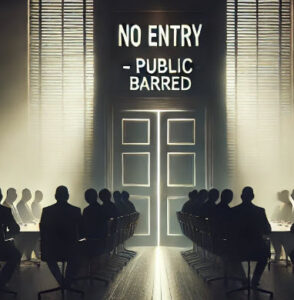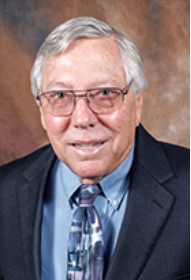Kuykendall talks about “hate,” “negativity” and appears to blame Kiel for keeping meetings on zoom
At its March 26 meeting, Third District Yavapai Community College Governing Board member Toby Payne requested that the official minutes of an earlier meeting, now before the Board for approval, accurately reflect Representative Patrick Kuykendall’s comments directed at Board member William Kiel. He specifically asked that the following statement be included in the February minutes. (Check video clip for accuracy.)
Also, at Board business (5)(c) I respectfully request the following be added: (At 14:54:04.) Board member Kuykendall said in part that he had seen nothing from Board member Kiel but “negativity and attacks on the Chairman and the president and the threats have got to end.” “Mr. Kiel since day one has made threats and been so disrespectful” and Kuykendall claimed he had never sat on a Board with so much “hate and discontent” coming from a Board member. He went on to ask what could be done legally to Mr. Kiel and claimed the reason the Board members were not holding in-person live meetings is when “somebody mentions firearms and they are unstable, it is a threat.” Mr. Kiel was not allowed to respond to the allegation by Mr. Kuykendall that he was “unstable” or anything else despite a request from him to be allowed to do so.
During discussion of Payne’s motion, Mr. Kuykendall said he had “no comment” and that he stood “by his actions.” Mr. Bracety said the motion didn’t “warrant comment.” Chair McCasland said she didn’t think the wording “was exactly accurate.” She also said she “did not approve of putting this into the minutes—the video will show it.” Moreover, she said she recalled the attorney at the meeting stating that the discussion must end because it was not appropriate.
Mr. Kiel commented, “It seems futile, but that is an accurate representation of what occurred during that meeting. I believe I was slandered at that meeting, and I have not yet decided how to proceed with that.”
The motion was rejected by a 3-2 vote, with Chair Deb McCasland, Patrick Kuykendall, and Steve Bracety voting in favor. Only Representative William Kiel voted in support of Payne.
A video clip of this portion of the meeting may be viewed below:

 OPINION: In a perplexing display of opacity, the chairperson of Yavapai Community College’s District Governing Board, Ms. Deb McCasland, has repeatedly insisted that unspecified “safety concerns” prevent the Community College’s District Governing Board from holding in-person public meetings. (For example, in-person public meeting on the Verde Campus once scheduled for this month.) Yet, despite weeks passing since announcing there were “safety concerns,” she refuses to elaborate on what these concerns entail or provide any evidence to substantiate them.
OPINION: In a perplexing display of opacity, the chairperson of Yavapai Community College’s District Governing Board, Ms. Deb McCasland, has repeatedly insisted that unspecified “safety concerns” prevent the Community College’s District Governing Board from holding in-person public meetings. (For example, in-person public meeting on the Verde Campus once scheduled for this month.) Yet, despite weeks passing since announcing there were “safety concerns,” she refuses to elaborate on what these concerns entail or provide any evidence to substantiate them. The sole spring exception was supposed to be the March 25 meeting, which had been scheduled as an in-person session at the Verde Valley Campus. However, the Board has now changed that meeting to a Zoom-only format—without offering any explanation.
The sole spring exception was supposed to be the March 25 meeting, which had been scheduled as an in-person session at the Verde Valley Campus. However, the Board has now changed that meeting to a Zoom-only format—without offering any explanation. OPINION: Some members of the Yavapai Community College District Governing Board seem to harbor a strong dislike for the newest elected member, William Kiel. (Most likely viewing him as asking too many questions; being too persistent, wanting greater transparency, and doesn’t necessarily agree with all their views.) That animosity became evident at the outset of the February 18 Board meeting when Kiel attempted to speak to a motion before it had been voted on. In response, the Chair McCasland employed a sleight-of-hand maneuver to pass the motion, bending procedure just enough to disguise what some feel was her real intent, which was to muzzle Kiel.
OPINION: Some members of the Yavapai Community College District Governing Board seem to harbor a strong dislike for the newest elected member, William Kiel. (Most likely viewing him as asking too many questions; being too persistent, wanting greater transparency, and doesn’t necessarily agree with all their views.) That animosity became evident at the outset of the February 18 Board meeting when Kiel attempted to speak to a motion before it had been voted on. In response, the Chair McCasland employed a sleight-of-hand maneuver to pass the motion, bending procedure just enough to disguise what some feel was her real intent, which was to muzzle Kiel. The Yavapai Community College Governing Board’s first order of business at its February 18 meeting was to call a secret executive session to discuss “Facility Safety and Security Measures.” Only three of the five Governing Board members attended the secret meeting in addition to College president Dr. Lisa Rhine.
The Yavapai Community College Governing Board’s first order of business at its February 18 meeting was to call a secret executive session to discuss “Facility Safety and Security Measures.” Only three of the five Governing Board members attended the secret meeting in addition to College president Dr. Lisa Rhine. On Thursday afternoon, February 6, 2025, members of the Yavapai Community College District Governing Board were notified via email that, due to unspecified “safety concerns,” future Board meetings would be held on Zoom. The notice stated that Chair McCasland “believes this will allow all meeting attendees, including the public, to participate in a safe setting.”
On Thursday afternoon, February 6, 2025, members of the Yavapai Community College District Governing Board were notified via email that, due to unspecified “safety concerns,” future Board meetings would be held on Zoom. The notice stated that Chair McCasland “believes this will allow all meeting attendees, including the public, to participate in a safe setting.”